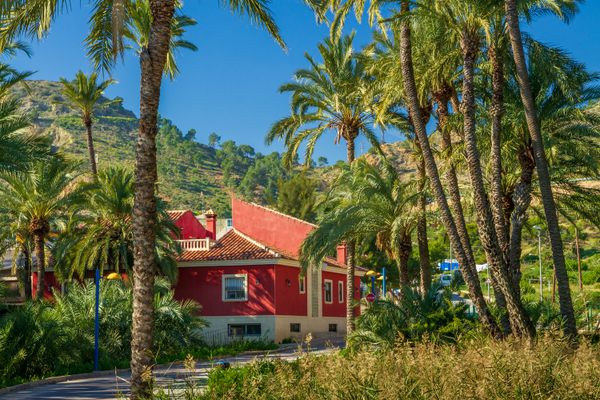Occupying an area of approximately 600,000 square meters, the Palmarel of Orihuela is the second-largest palm grove in Europe. The dominant species is the date palm, a plant that was introduced by Orihuela’s Moorish occupiers in the eighth century. Sometimes called the Palmarel of San Anton, this area is unique among large palm plantations in Spain because the size of the plantation is largely unchanged from Moorish times, while others have been impacted by urban development.
The area around Orihuela is particularly suitable for palms cultivation because of the shelter from the mountains of the Sierra de Orihuela and the availability of water drawn from the ancient irrigation system in the area. The Palmaral has been designated as a Site of Cultural Interest by the Spanish government.
The palm groves are not self sustaining in that long-term maintenance of the trees is necessary (trees generally live about 250 years). Replacing old and diseased trees is part of the necessary maintenance of a nursery area. Maintenance work has become even more essential recently as palm trees in Spain have come under threat from an insect pest (the red palm weevil), which requires significant intervention from arboriculturists to protect the trees. It has also been important to remove various saplings to prevent the area from becoming overrun by invasive species.
During the Moorish period the palm groves were operated in a three layer system with palms being used to harvest dates and other products and to provide partial shade for smaller trees, such as pomegranate, under which ground level plants (for grazing) could thrive under the effective irrigation regime available. Nowadays, despite the fact that the temperatures in southern Spain is warm enough for dates to ripen, there is no commercial exploitation and the palms are maintained, with great effort, for heritage, amenity and environmental purposes.

